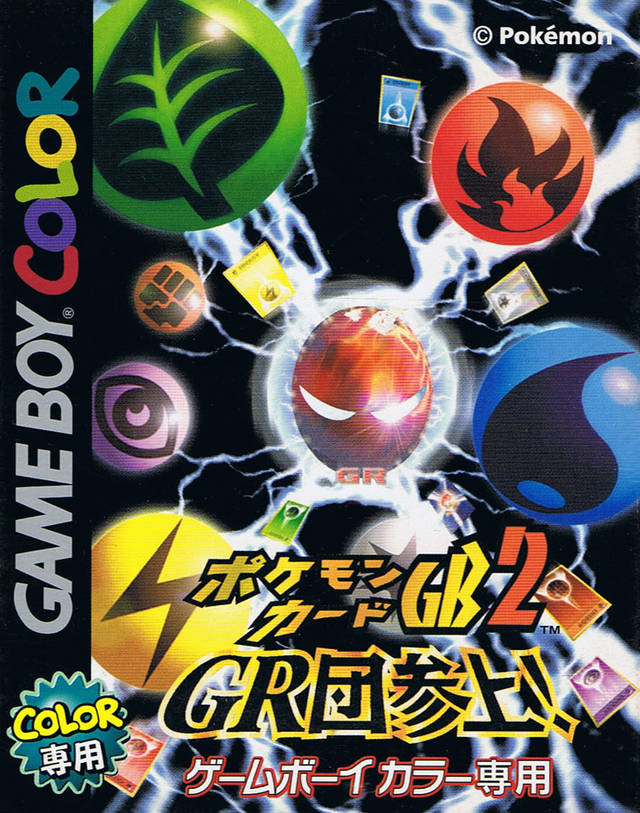I've been digging into the fan translation of Pokémon Card GB 2: GR Dan Sanjou!, the Japan-only sequel to Pokémon Trading Card Game on the GBC.

Really enjoying it so far.
I played the original game back in the day when it was contemporary, and I really loved it. It's an interesting one, because it's an RPG, but it doesn't take place in the Pokémon world. Pokémon aren't real, physical animals, instead it's just this place where everyone is obsessed with playing and trading Pokémon cards for some reason.
In the original, the story is simple. The aim is to move around the island where the game is set, visiting different elemental gyms, and beating the gym leaders. Once you've done all of that, you go to a kind of Elite Four type place to fight the end bosses and become the champion.
The story of the second, interestingly, follows on directly from the first. You're on the same island, you're the same kid, but everything is in disarray. Team Great Rocket have shown up, taken over the gyms, and stolen everyone's cards, so no one can play the TCG any more. It falls to you to visit all of the gyms from the first game again, and get back the cards from the invading Team GR folks by (how else?) defeating them at TCG matches.
However as I understand it, this is only half the game - once you beat the Team GR members on the original island, you fly to Team GR's own island, where there's a whole new set of gyms to work through.
Both entries in the short series were developed by Hudson Soft, and the simple RPG story that wraps around the core gameplay of playing the TCG, collecting cards and building decks works really well. A lot of the fun is down to the enjoyable design of the TCG itself, of course. It's a really compulsive play.
I was concerned that I might be find this boring or too easy today, but actually it's fully gotten its hooks into me, just as it did back in ~2000. And it's not that easy, either! I've read this one is actually more challenging than the original. It certainly feels like it was designed for players who'd already beaten the first game, particularly in terms of how the story is a direct follow-on.

Really enjoying it so far.
I played the original game back in the day when it was contemporary, and I really loved it. It's an interesting one, because it's an RPG, but it doesn't take place in the Pokémon world. Pokémon aren't real, physical animals, instead it's just this place where everyone is obsessed with playing and trading Pokémon cards for some reason.
In the original, the story is simple. The aim is to move around the island where the game is set, visiting different elemental gyms, and beating the gym leaders. Once you've done all of that, you go to a kind of Elite Four type place to fight the end bosses and become the champion.
The story of the second, interestingly, follows on directly from the first. You're on the same island, you're the same kid, but everything is in disarray. Team Great Rocket have shown up, taken over the gyms, and stolen everyone's cards, so no one can play the TCG any more. It falls to you to visit all of the gyms from the first game again, and get back the cards from the invading Team GR folks by (how else?) defeating them at TCG matches.
However as I understand it, this is only half the game - once you beat the Team GR members on the original island, you fly to Team GR's own island, where there's a whole new set of gyms to work through.
Both entries in the short series were developed by Hudson Soft, and the simple RPG story that wraps around the core gameplay of playing the TCG, collecting cards and building decks works really well. A lot of the fun is down to the enjoyable design of the TCG itself, of course. It's a really compulsive play.
I was concerned that I might be find this boring or too easy today, but actually it's fully gotten its hooks into me, just as it did back in ~2000. And it's not that easy, either! I've read this one is actually more challenging than the original. It certainly feels like it was designed for players who'd already beaten the first game, particularly in terms of how the story is a direct follow-on.





Comment